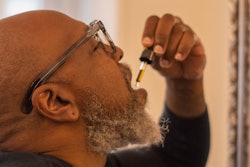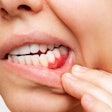
Smoking marijuana may not increase a person’s risk of developing caries; however, those who also smoked tobacco had a heightened risk of tooth decay. The large U.S. study was published on February 13 in the International Dental Journal.
On the contrary, specific behaviors often associated with marijuana smoking, including increased appetite and poorer oral hygiene, may be relevant risk factors for caries, the authors wrote.
"Health promotion programmes should be aimed at educating the public regarding the combined health impacts of smoking both marijuana and tobacco, considering the potential heightened caries risk," wrote the authors, led by Thayer Scott, MPH, of Boston University’s Henry M. Goldman School of Dental Medicine in Massachusetts.
As the legalization of medical and recreational marijuana expands across the U.S., the number of people using cannabis is rising. Therefore, marijuana use and the possibility that it may amplify oral health problems has become a growing concern.
Also, this has led to a new body of research that explores how marijuana affects dentistry. In September 2023, research was published showing that patients who regularly used marijuana needed higher doses of Versed and propofol prior to undergoing oral and maxillofacial surgery. However, the change was insignificant after adjusting for patient weight and the length of the procedure performed. Another study published in January 2023 revealed that patients undergoing IV sedation who test positive for cannabis may have vital signs and anesthetic requirements like those who don't have the drug in their systems.
To examine the effects of marijuana smoking on caries development, a cross-sectional study was conducted using data from the 2011-2014 U.S. National Health and Nutrition Examination Survey. Demographics, tobacco and marijuana smoking, dental examination, and dietary intake for 4,173 U.S. adults were analyzed.
Of the adults, 51% reported previous or current exposure to marijuana, and 49% reported never using it (2,035 people). Of those who reported exposure, 1,687 smoked marijuana previously and 451 were current cannabis smokers, the authors wrote.
Caries was measured as decayed, missing, filled teeth (DMFT), and data analysis was conducted to explore the link between marijuana smoking and DMFT, according to the study.
In nonsmokers, the mean DMFT score was lowest (8.72), while the highest caries score was in the current marijuana smokers cohort (9.87) (p < 0.0001).
After controlling for sociodemographic factors, including age, and other potential confounders, including diet, linear regression models showed that smoking marijuana was not linked to caries. Adjusted DMFT was the highest for current tobacco and for previous marijuana smokers (b estimate = 1.18; 95% confidence interval, 0.27 to 2.62). However, the correlation was not statistically significant, the authors wrote.
Since the study was cross-sectional, the relationships do not indicate causality. Although the analysis adjusted for multiple confounders, unmeasured effects cannot be ruled out. Furthermore, a limitation of the study included the small sample size of current marijuana smokers, which could provide estimates for caries that are unstable, they wrote.
Nevertheless, more studies, including longitudinal ones with larger sample sizes, should be done. Additionally, studies should examine dose-response effects and how marijuana is consumed, including eating edibles that often contain sugar, may affects oral health differently, the authors wrote.
“Although our study did not find a statistically significant association between marijuana-smoking and dental caries experience, it is crucial for dentists to take into account the potential effects of the drug on clinical treatments.,” Scott et al wrote.



















